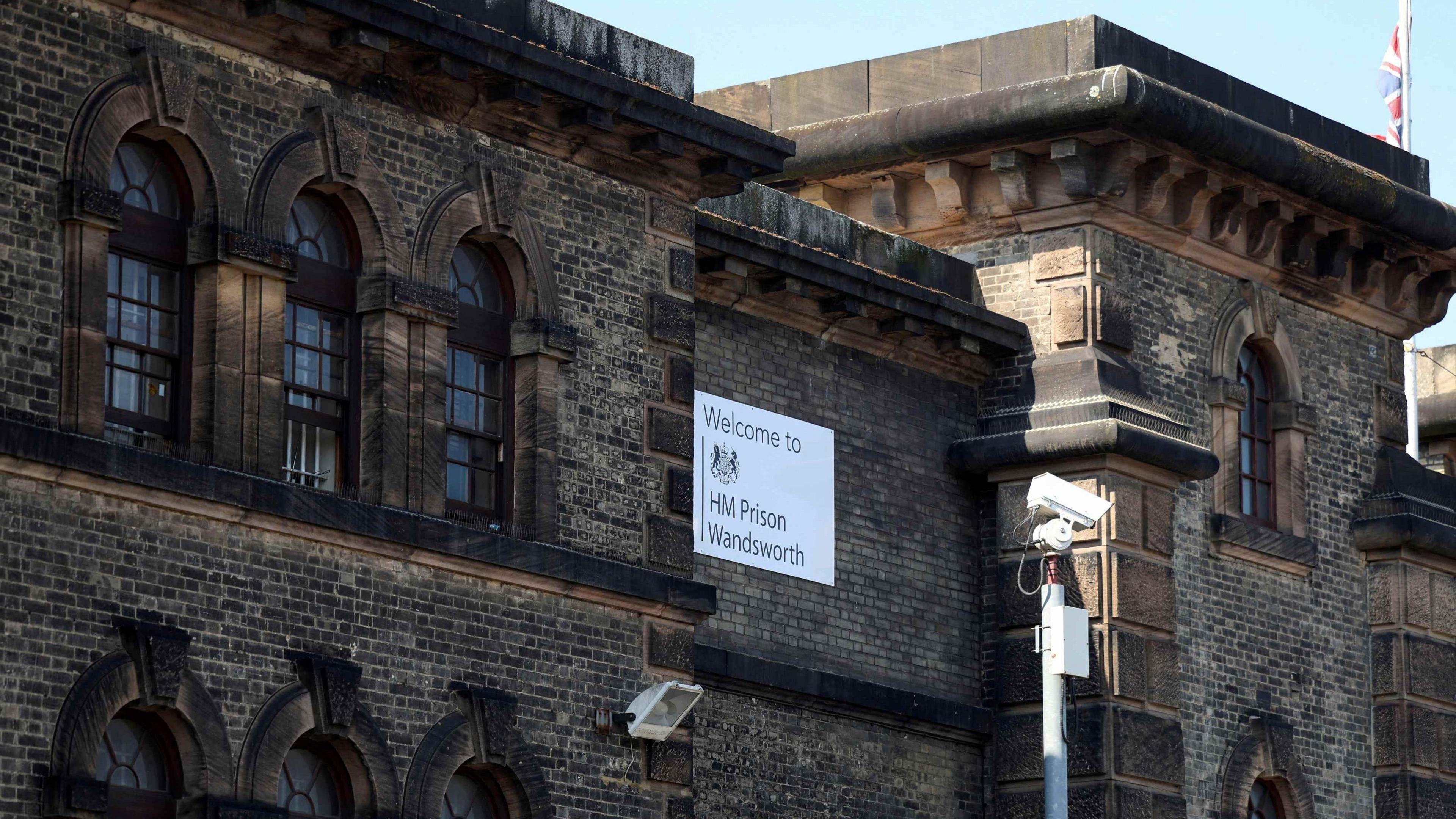HMP Wandsworth under fire over inmate's suicide

HMP Wandsworth staff missed opportunities to help Rajwinder Singh, a report has found
- Published
A prisoner "would almost certainly still be alive today" if he had not been sent to crisis-hit HMP Wandsworth, a watchdog has ruled.
A damning investigation found staff repeatedly missed opportunities to help Rajwinder Singh, 36, who took his own life 11 days after arriving at the south-west London prison in June 2023.
The prison falsified records, ignored his call bell and did not check on him when his wife phoned with concerns for his welfare the day he died.
A Prisons and Probation Ombudsman report, external said the prison "made critical and repeated failings in their duty of care to Mr Singh".
'Voluminous failures'
In response, the Prison Service said it would update its suicide and self-harm prevention procedures to ensure it could better identify prisoners at risk.
The ombudsman's report said his care indicated the prison's delivery of suicide and self-harm protocols, known as ACCT, was "little more than shambolic".
Ombudsman Adrian Usher wrote: "The failures in this case were voluminous and diverse.
"There were multiple opportunities for meaningful interventions within Mr Singh's care that would have led to a different outcome, that were repeatedly missed.
"I do not make the following statement lightly, but I consider that had Mr Singh been sent to a different prison in 2023, not in such a state of crisis, he would almost certainly still be alive today."
Mr Singh was taken to HMP Wandsworth after being sentenced to four years in prison for the acquisition, use and possession of criminal property on 9 June 2023.
He had fibromyalgia, asthma, alcohol problems and depression, for which he took medication.
'Extremely poorly managed'
The report found Mr Singh's risk of suicide was not properly assessed when he arrived at the Category B prison, despite his notes warning he had attempted to take his own life in the previous six months.
It said he was "extremely poorly managed" under ACCT from 12 June. He was not checked every hour as he should have been, often with long gaps between recorded checks, and he was not given a case co-ordinator.
Staff failed on four occasions to immediately review Mr Singh's risk when he self-harmed from 15 to 19 June, despite this escalating in seriousness to tying a ligature around his neck and setting his hair on fire.
The report said staff should have considered whether he needed to be constantly supervised.
A nurse started reducing Mr Singh's dose of pregabalin on 17 June, with a view to stopping it completely after seven days, as he had reported having epilepsy and this could not be confirmed.
More on Wandsworth Prison
Rats and sewage in prison unbearable - volunteer
- Published2 May 2024
Wandsworth Prison unsafe and inhumane - report
- Published11 October 2023
Wandsworth Prison still lacks security - inspector
- Published10 May 2024
While the medication is used to treat epilepsy, it is also used for nerve pain and anxiety, and it was unclear why he was taking it. He was not told his prescription was being reduced.
The report said staff should have considered how reducing Mr Singh's pregabalin dose affected his mental health, as stopping it can cause suicidal thoughts and behaviour.
On 18 June, he told his wife he did not know why "they had stopped his medication" and he needed it to help with his pain.
He also did not always receive medication for his mental health due to staffing shortages.
The frequency of Mr Singh's ACCT checks was only increased to twice an hour after he set fire to a mop in his cell at around midnight on 20 June, when he also expressed wanting to take his own life. This came just hours after he had set fire to his own hair.

The Category B prison was found to be "unsafe and inhumane" in a report issued in October 2023
The watchdog found an urgent mental health assessment of Mr Singh later that day failed to identify his current risks.
Staff did not respond when Mr Singh rang his call bell at 20:36 BST that evening, which the report said was a "serious missed opportunity" to save his life.
Officers found him unresponsive in his cell at 21:06. He was taken to hospital but died on 25 June.
The investigation revealed staff had falsified records, as CCTV from 17:00 on 2 June showed two checks that were documented had not actually been carried out.
Prison did 'alarmingly little'
Mr Singh was one of five prisoners who took their own life at the jail in 2023. The latest report from the Independent Monitoring Board said the shortage of available staff seriously undermined the prison's ability to function effectively during the year from June 2023 to May 2024.
Mr Usher said: "I remain extremely concerned about prisoner care at Wandsworth and I urge the Prison and Probation Service to consider how they can support meaningful improvements before another prisoner takes their own life.
"Wandsworth did alarmingly little to appropriately care for Mr Singh, nor did they recognise or attempt to mitigate his obviously increasing risk."
A Prison Service spokesperson said: "Our thoughts remain with those who knew Rajwinder Singh.
"We have accepted and actioned the Prisons and Probation Ombudsman's recommendation. This includes updating suicide and self-harm prevention procedures to ensure we can better identify prisoners at risk."
An inquest with concluded earlier this month found that neglect contributed to Mr Singh's death.
The coroner will be making a prevention of future deaths report at the end of October.
If you have been affected by themes raised in this article, you can find extra support and help via the BBC Action Line.
Listen to the best of BBC Radio London on Sounds and follow BBC London on Facebook, external, X, external and Instagram, external. Send your story ideas to hello.bbclondon@bbc.co.uk, external